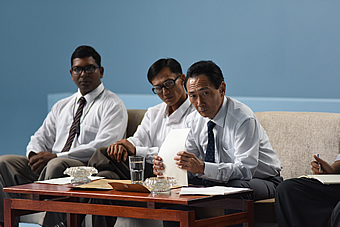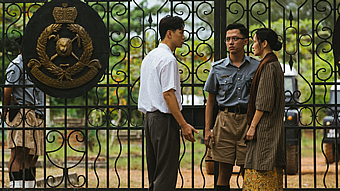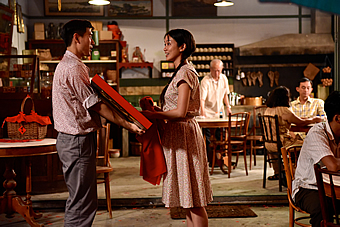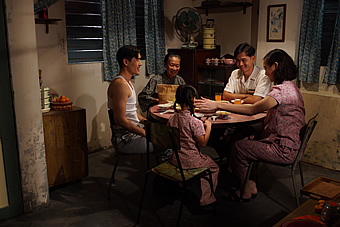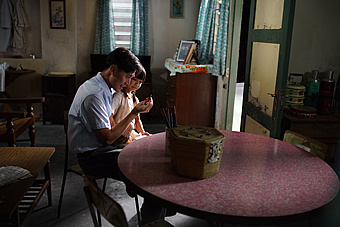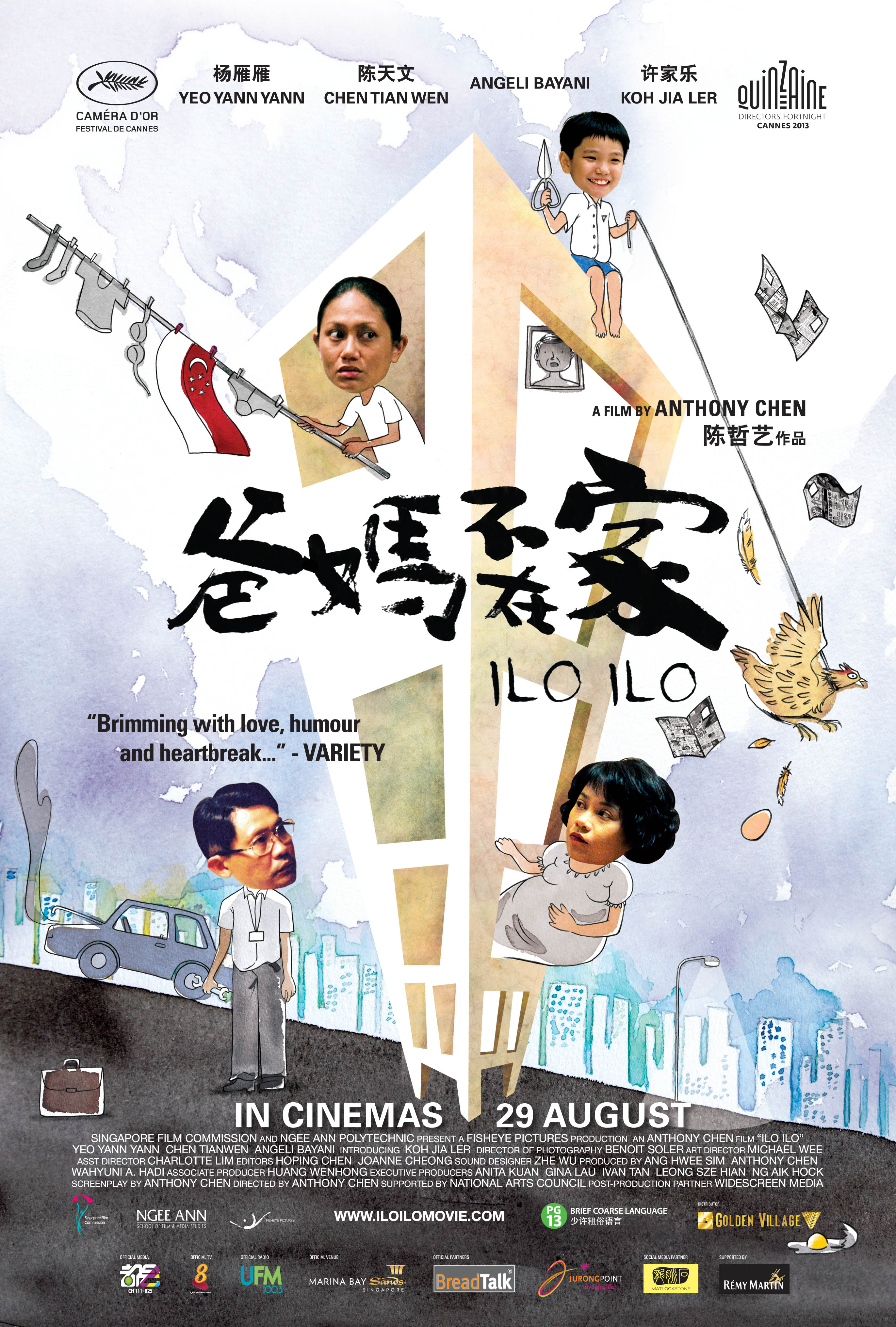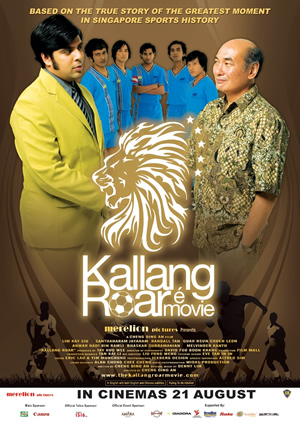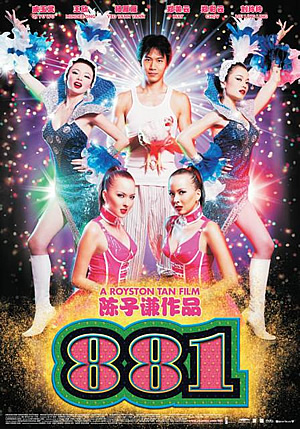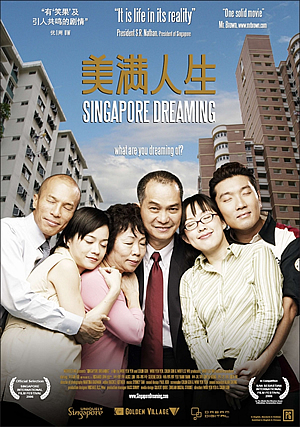1965 (2015)
Genre: Drama/History
Director: Randy Ang
Cast: Qi Yuwu, Deanna Yusoff, Joanne Peh, James Seah, Sezairi, Mike Kasem and Lim Kay Tong as Lee Kuan Yew
Runtime: 2 hrs 10 mins
Rating: PG13 (Some Violence)
Released By: blue3 Pictures, mm2 Entertainment and Shaw Organisation
Official Website: https://www.facebook.com/1965movie
Opening Day: 30 July 2014
Synopsis: ‘1965’ is a riveting dramatic thriller that uses a piece of Singapore history like never before. Telling engaging and touching stories of immigrants and natives; how a group of people, divided by race, language and religion, saw their lives profoundly transformed by a defining moment in history. Their paths will cross and clash in the race riots during the months leading to the separation from Malaysia, and to the independence of Singapore.
Movie Review:
If there is one thing that ‘1965’ has going for it, it is hype. Long before its multi-hyphenate executive producer/co-writer/co-director Daniel Yun explained what his passion project was all about, speculation was rife that it would be a biopic about Singapore’s founding father, and even rumours of Tony Leung Chiu-Wai playing our very own Lee Kuan Yew. For the record, LKY is in the film, not as a main character but a pivotal supporting act, and played authoritatively by veteran character actor Lim Kay Tong. Unfortunately, all that hype has amounted to pretty much nothing, as ‘1965’ is no better than a stodgy pseudo-documentary set in two distinct time periods within the year leading up to Singapore’s separation from Malaysia, i.e. that titular year in which we gained independence.
Narrated like a didactic piece of politically correct propaganda by Sezairi Sezali, it opens in present day with Sezali and lead actor Qi Yuwu’s real-life fathers playing older versions of their characters, who we are told have survived the tumultuous period of the early 1960s very different from the Singapore we know today. Just before we are dropped into 3 September 1964 (which, if you haven’t been sleeping during your history lessons, should know as the second racial riot of that year), we get a glimpse of LKY preparing for his iconic national address the year after, which we realise later is meant to bookend the fictional parts of the film. But yes, it is on that fateful day where a Malay trishaw rider was found murdered in Geylang that we are first introduced to the various characters whose fates will intertwine over the course of the film.
There is Qi Yuwu’s police inspector Cheng, a doting husband to his wife Mei (Nicole Seah) and daughter Xiao Yun. There is James Seah’s Seng, brother to Cheng and leader of a group of educated intellectuals purportedly fighting for Chinese rights. Seng is in love with Jun (Joanne Peh), a simple-minded girl who spends her days helping her father out in his coffee shop in Chinatown. On the other side of the racial divide is Deanna Yusoff’s Khatijah, a fruit seller in Geylang with four sons, among them Sezali’s new recruit Adi and the youngest named Rafi. In the ensuing melee, Rafi dies from a head injury as Khatijah looks helplessly on, her pleas to Cheng to save her son falling on deaf ears because Cheng is apparently shell-shocked to see Seng instigating the violence.
It’s an awkward scene to say the very least, not only because of bad framing but also because the camera lingers too long on Yuwu’s (already) blank face and Yusoff’s histrionic crying. There is also little continuity to explain just how the riots which began in Geylang spread all the way to Chinatown, and the intercutting of scenes from these two locations just makes the lack thereof even more apparent. It doesn’t help that Sezali has to add an intrusive voiceover at the end of it to practically tell us how to interpret the racially drawn conflict, almost as if the filmmakers couldn’t trust their audience to be discerning enough. Ditto for the second half, which leapfrogs a few months later to the Chinese New Year celebrations in 1965, that sees Xiao Yun being kidnapped and the Malays being fingered for her disappearance.
Indeed, somewhere in the severely neutered narrative is a poignant reminder of how the cloud of distrust between the Malays and the Chinese led to fomenting tensions, especially with Khatijah blaming Cheng for the death of her youngest child and Cheng suspecting that his daughter was kidnapped by the Malays in a tit-for-tat move. Yet in spite of a potentially explosive setup, there is absolutely no dramatic tension in the storytelling. Nowhere is this more apparent than in a supposedly emotional scene where Cheng and his wife Mei arrive at Khatijah’s doorstep to personally declare his innocence; not only is Cheng’s impassioned speech about “not allowing fear and suspicion to take root and lead to misunderstandings” sanctimonious, the way it is presented – with Cheng speaking in fluent Cantonese while Mei translating impassively in Malay to Khatijah and Cheng taking over at the end to make a final point in seemingly fluent Malay – is simply baffling.
To give Yun, his director Randy Ang, and co-screenwriter Andrew Ngin the benefit of the doubt, it could not have been easy navigating the bureaucracy to produce a film about the racial riots, which probably explains why the portrayal of the interracial discord seems so dispassionate (in order not to be accused as being inflammatory in itself). Yet, this doesn’t excuse the clumsy staging, the melodramatic excesses or the tepid pace, such that one is hard-pressed to consider their film a thriller by any count, nor riveting by any measure. Even the finale where Cheng and Seng confront Xiao Yun’s kidnappers unfolds in the most unexciting manner, squandering any opportunity to exploit what artistic license they have over the material into anything genuinely engaging.
That feeling of missed opportunity also pretty much sums up our sentiments towards the first Singapore film to portray LKY. Not only do the filmmakers fail to deconstruct the aura of the man for a younger generation who had not lived through Singapore’s founding years, they also fail to weave the few scenes of LKY preaching his ideology of a multi-racial Singapore into a compelling theme with the fictional narrative, so much so that Kay Tong’s appearances end up no better than a distracting sideshow that belong in a different movie altogether. Yes, it is telling when the most moving part of the movie is its epilogue made up of recently shot real-life footage of crowds lining the roads to pay tribute to Singapore’s founding father’s casket on its way from Parliament House to the state funeral at NUS.
Because his few scenes are no more than re-enactments of actual events, Kay Tong’s portrayal of LKY is as affected as it gets. It is less an interpretation of the role than an imitation of LKY himself, in that even the hotly anticipated scene where he mimics LKY breaking down on national TV would arguably be no less compelling than if it were replaced by actual TV footage readily available on the Internet or in our national archives. The same can be said of the rest of the cast, who try to make the best out of their thinly written roles. Qi’s acting has long been criticised for being wooden, but he emotes much more convincingly here than in his previous bigscreen roles. Despite the over-the-top tendencies of the filmmakers, Yusoff manages to inject some much-needed nuance into her role as a bereaved mother. Seah brings a suitably brash edge to his character, and he shares perhaps one of the most moving scenes with Peh when the latter confronts him with the repercussions of his actions.
And yet even their committed performances can’t quite lift the material from its own tedium, that combines a generally unengaging story with dull, or worse, clumsy execution and preachy moralistic overtones that better suit an officious historical account than a supposed work of dramatic fiction. It couldn’t have been easy to fashion a movie around Singapore’s independence – not to mention one that has the “SG50” stamp of approval from the authorities – and there are evident traces of that ambition onscreen, such as the true-to-life sets constructed for the outdoor filming and the sheer number of extras employed to depict the riot scenes; yet, that ambition has not itself translated into a film of much filmmaking merit, be it in plot, character or just plain mise-en-scène. ‘1965’ is, after all that hype, sadly and rather hugely underwhelming, if not for anything than a squandered chance to mine our country’s vivid history into something equally compelling for the big screen.
Movie Rating:



(An ambitious – but ultimately vain – attempt to weave a compelling piece of fiction from a vivid slice of history, this dramatically inert and overtly preachy drama is no better than an officious pseudo-documentary)
Review by Gabriel Chong
You might also like:
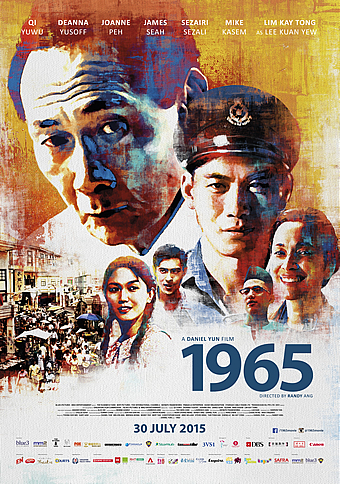
Movie Stills
